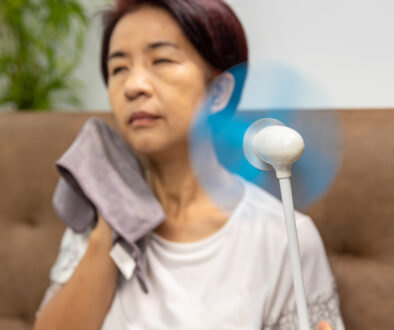What To Do If Your Period Stops and You’re Not Pregnant
At first, you may have panicked. When your period stopped, your first thought was that you were pregnant. But your home pregnancy test was negative. You then turned your attention to other possibilities—could factors such as stress be a cause? Is this a sign of something more serious?
Here are some facts that may alleviate your worry. Amenorrhea—the absence of menstrual periods—does not always signify a serious problem. It may be caused by natural hormonal changes such as menopause or something as common as stress. The key to treating amenorrhea successfully depends upon addressing the underlying cause.
Even though amenorrhea may not indicate urgent medical issues, it is something that must be treated. There are multiple causes, and it’s vital for us to get to the heart of the issue for your gynecological health. Therefore, you should schedule an appointment with us as soon as possible. We look forward to the opportunity to serve you!
But what if your period stops and you’re not pregnant? We’ll take you through the many possible causes and solutions.
What is the difference between primary and secondary amenorrhea?
First, let’s look at what type of amenorrhea you may have. There are two main types: primary and secondary.
Primary amenorrhea occurs when a young woman has not had her first period by the time she turns 16. Secondary amenorrhea happens when a woman who has previously had normal menstruation cycles stops getting her period. (The Cleveland Clinic).
Primary amenorrhea signifies a change in organs and hormones involved in menstruation. Secondary amenorrhea has a wide variety of causes ranging from pregnancy to stress.
If you have amenorrhea, you may also experience symptoms such as:
- Headaches
- Hair loss
- A milky discharge from the nipples
- Pelvic pain
- Development of or increase in facial hair
- Changes in vision
- Acne
“It’s important to realize that amenorrhea does not automatically mean there is a problem. However, it could indicate fertility issues. It’s very important for it to be evaluated because there are so many possible causes.” said Dr. Hardison. “By arriving at a precise diagnosis, we can begin an effective treatment.”
What Could Cause My Amenorrhea?
We’ll take a look at several conditions and illnesses that can affect your period. These include:
- Hormonal imbalances including:
- Polycystic ovary syndrome (PCOS)
- Thyroid problems, such as hyperthyroidism (an overactive thyroid) or hypothyroidism (an underactive thyroid).
- A tumor on the pituitary gland.
- Premature menopause (While menopause typically begins around age 50, some women experience it much earlier.)
- Weight
- If you are more than 10 percent underweight you can develop amenorrhea.
- Medications
- Certain medications can cause an absence of periods. These include:
- Birth control –including pills, injections and devices
- Chemotherapy drugs
- Medications to treat high blood pressure
- Certain types of allergy medications
- Psychiatric medications such as antidepressants or antipsychotics
- Certain medications can cause an absence of periods. These include:
- Lifestyle factors
- If you’ve been under the weight of a lot of constant stress you may no longer have periods. This is because stress affects how well the hypothalamus functions. The hypothalamus is part of the brain that regulates hormones which triggers the menstrual cycle.
- Are you undergoing intense athletic training, whether as part of a team or recreation? This could interrupt your menstrual cycles.
- Structural problems with reproductive organs, including uterine scarring.
How Will You Treat My Amenorrhea?
Effective treatment depends upon the underlying cause. For example, if your period has stopped due to stress, we may recommend some lifestyle changes to help you. Treatment may also involve helping you maintain a healthy weight. Hormonal supplements are another solution.
If You’re Having Irregular Periods, Our OBGYNs in Chapel Hill and Durham Can Help
There are several causes of abnormal periods. You may have periods that are excessively heavy or painful. Whether your periods are irregular, or if your period has stopped and you’re not pregnant, we need to get to the underlying cause of the issue.
Our leading healthcare team of OBGYNs in Chapel Hill and Durham will work closely with you to develop a plan tailored specifically to your needs. And typically, we can schedule an appointment with you that same week. Contact us for an appointment today.
The information in this article and the other articles on this website is for educational purposes only and is not intended as medical advice. If you have questions or concerns, please contact your healthcare provider.




